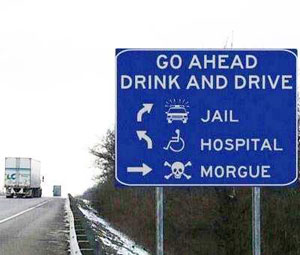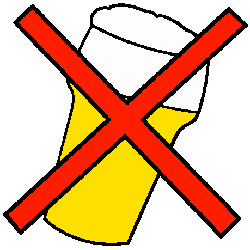 17 members of a new Florida DUI Court Program watched as Roger Gilb, a man with no criminal record, was sentenced for DUI manslaughter for the deaths of two people on a motorcycle. The man had no previous criminal record. The point of the program is to show DUI offenders what could happen to them and let the reality of their offense sink in.The DUI Court started in Volusia this April and was started with the help of County Judge Belle Schumann. After the sentencing of the man charged with DUI Manslaughter, Judge Schumann said of the new group, “I know everybody is thinking, ‘There but for the grace go I.'”
17 members of a new Florida DUI Court Program watched as Roger Gilb, a man with no criminal record, was sentenced for DUI manslaughter for the deaths of two people on a motorcycle. The man had no previous criminal record. The point of the program is to show DUI offenders what could happen to them and let the reality of their offense sink in.The DUI Court started in Volusia this April and was started with the help of County Judge Belle Schumann. After the sentencing of the man charged with DUI Manslaughter, Judge Schumann said of the new group, “I know everybody is thinking, ‘There but for the grace go I.'”
Gilb’s blood alcohol content was twice the legal limit when the accident occurred that caused the deaths of Nina Hargis and Gregory Stanley. The selective DUI Court Program is for offenders whose BAC was .15% or higher, or who have a previous DUI conviction.
To participate in the program, the offenders are required to a much higher level of monitoring, and they must attending at two DUI sentencings.
One of the participants at Gilb’s sentencing said, “It shook me up. I felt like it was me. I felt compassionate toward him. Thank the Lord I’ve been protected enough, I never did that.”

 Butte’s DUI task force met this week to discuss new ideas for DUI prevention in the county. DUI preventions present in Butte include the 24/7 Sober Program, Mariah’s Challenge, and a Butte DUI Court which started last October.
Butte’s DUI task force met this week to discuss new ideas for DUI prevention in the county. DUI preventions present in Butte include the 24/7 Sober Program, Mariah’s Challenge, and a Butte DUI Court which started last October.

 Georgia has been overdue for DUI law reform, and in April the State Senate expanded SB 236, an Act which allows repeat DUI offenders to have more flexibility in their driving privileges.
Georgia has been overdue for DUI law reform, and in April the State Senate expanded SB 236, an Act which allows repeat DUI offenders to have more flexibility in their driving privileges.
 New Jersey will receive
New Jersey will receive Wyoming is considering adopting a
Wyoming is considering adopting a  A
A